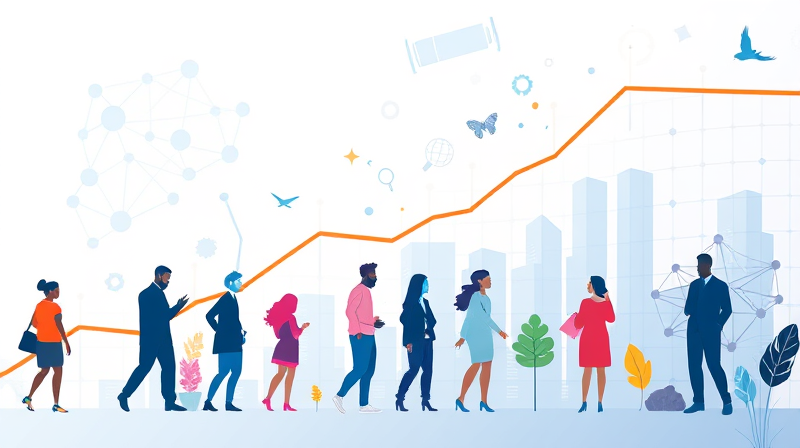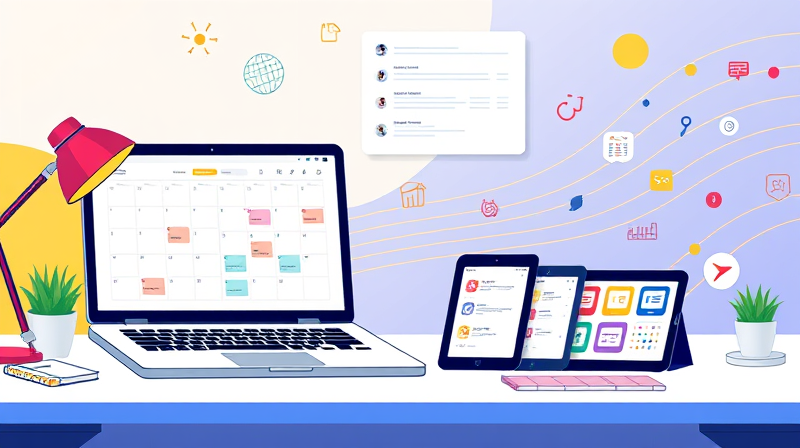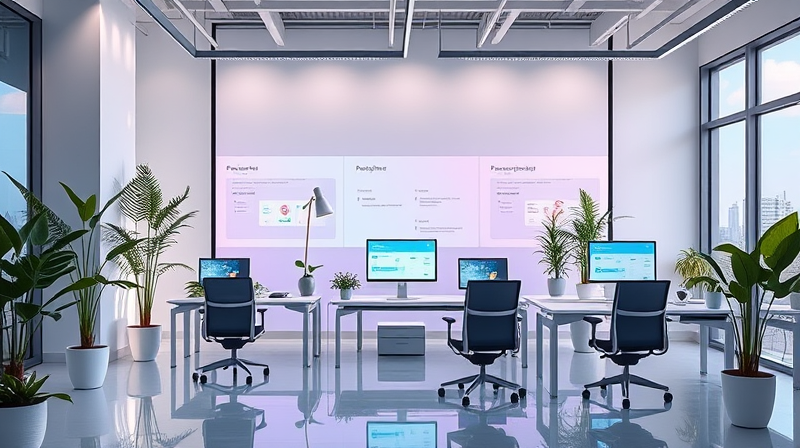In today’s rapidly evolving work environment, organizations are continually challenged to adapt and thrive in the wake of technological breakthroughs and changing employee expectations. With digital transformation at the forefront, companies must now embrace agile and human-centric strategies designed to empower teamwork, innovation, and sustainable success.
The journey to a modern organizational approach is marked by challenges that test the agility of leadership and the resilience of teams. However, by understanding and implementing actionable steps, every business can streamline processes, celebrate diversity, and cultivate an environment that not only meets but exceeds the demands of the modern marketplace.
Embrace Digital Transformation and Workforce Agility
Digital transformation is more than a trend; it is a necessity. In an era where automation and AI redefine business processes, integrating these tools within existing infrastructures is crucial. Advanced technologies have the potential to automate repetitive tasks, personalize experiences, and deliver significant efficiencies across all functions.
Companies should make strategic investments in AI, not only to enhance operational efficiencies but also to provide tailored learning experiences that empower employees. By adopting digital tools, organizations can break down silos and promote a culture of continuous improvement.
- Invest in AI skill-building programs: Equip your team with the knowledge and skills needed to leverage technological advancements effectively.
- Use technology ethically: Establish ethical frameworks to guide technology adoption and maintain trust with stakeholders.
By recognizing the transformative potential of technology, businesses can lay the foundation for further enhancements in both strategy and culture.
Prioritize Employee Well-Being and Cultivate Change Management Practices
Employee well-being is the bedrock of modern organizational success. In environments where people feel valued and supported, productivity and innovation flourish. Today’s leaders are learning that the health of their workforce directly impacts performance.
Creating robust Employee Assistance Programs (EAPs) and offering mental health resources are critical steps towards nurturing employee morale and reducing turnover. Flexible work arrangements and work-life balance should no longer be considered perks but essential components of a sustainable model.
- Support mental health: Integrate stress management and emotional intelligence training for leaders.
- Promote well-being surveys: Regularly gather feedback and adapt strategies to improve employee satisfaction.
Complementing these practices with strong change management strategies, organizations can navigate through continuous disruptions. Establishing Centers of Excellence for change management and fostering environments of psychological safety helps instill confidence during transitions and supports measurable, adaptive growth.
Upskill, Reskill, and Foster an Inclusive Culture
Upskilling and reskilling are essential investments in your organization’s future. With rapid shifts in market dynamics and work requirements, offering training and mentoring programs is key to keeping your workforce agile and motivated. When employees see clear career pathways and growth opportunities, their engagement soars, resulting in a more robust, dynamic team.
Conducting thorough skill gap analyses and providing access to a wealth of learning opportunities can inspire innovation and empower staff to excel in emerging roles. An inclusive approach that embraces diversity fosters collaboration and creativity, driving significant benefits in organizational performance.
- Develop career pathways: Use continuous learning and mentorship programs to build a resilient workforce.
- Celebrate diversity: Establish Employee Resource Groups (ERGs) and recognition programs that promote inclusion.
This dual focus on training and inclusion ensures that all employees feel seen, valued, and capable of contributing meaningfully to organizational success.
Align Goals with Social Responsibility and Leadership Evolution
Modern organizations thrive by aligning their goals with broader social responsibilities. As consumers, investors, and employees increasingly demand corporate accountability, integrating ethical practices into everyday operations is essential. This is not just about compliance; it is about building trust and fostering a positive brand reputation.
Businesses that weave social and environmental responsibility into their operational fabric position themselves as leaders in their industries. Transparent practices, ethical decision-making, and stakeholder engagement create a lasting impact that resonates with ever-evolving societal values.
- Promote ethical leadership: Invest in leadership development programs that emphasize empathy, adaptability, and effective communication.
- Champion responsibility: Embed social and environmental concerns into your organizational strategies.
When leaders are trained to think beyond profits and towards societal impact, they become catalysts for long-term change and innovation.
Leverage Flexible Work Models for Enhanced Collaboration
The hybrid work model encapsulates the future of collaboration. Combining the flexibility of remote work with the structure of in-office operations offers the best of both worlds. This model not only increases employee satisfaction but also boosts productivity through optimized work environments.
Organizations must provide the proper technological tools, set clear expectations, and use virtual collaboration platforms to support a cohesive hybrid setup. By designing roles that adapt to this new paradigm, companies can ensure that each team member remains connected, engaged, and productive.
- Empower teams digitally: Equip employees with reliable technology and clear guidelines for hybrid work.
- Maintain engagement: Utilize digital platforms to foster a culture of open communication and collaboration.
This modern approach to work models emphasizes that flexibility and structure are not mutually exclusive—they are complementary facets of a progressive organizational culture.
In conclusion, your journey towards a streamlined and resilient organizational approach involves a series of actionable strategies. By integrating digital technologies, prioritizing employee well-being, and fostering continuous learning and inclusivity, your organization can not only meet the demands of the contemporary business landscape but also navigate future transformations with confidence.
Embrace these steps, inspire your teams, and build a future where every stakeholder feels empowered. The path to success lies in aligning technological advancements with a deep commitment to humanity and ethical leadership. With focused effort and a clear vision, you can create an organization that thrives in both innovation and inclusivity.
This comprehensive approach ensures that your business remains agile, resilient, and ready for the challenges of the future. Whether you are reimagining your digital strategy or revamping leadership models, every incremental move counts towards cultivating a workplace that is truly ready to excel in a dynamic global environment.







